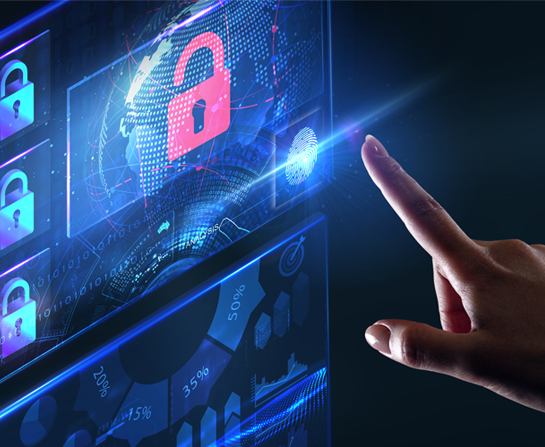COVID-19: WHEN WE WIN ONE WAR, WE LOSE ANOTHER?
May 8, 2022 Return

A contribution from Dr Hardip Singh Gendeh, Professor Dato Dr Hanafiah Harunarashid, and Dr Levin Kesu Belani
As we start a new day afresh, we are greeted by news of SARS-CoV-2, its growing fatalities and the nations that are leading the score board. Governments are controlling numbers through public health efforts of restricted movements and social distancing.
Tracing of personal details to turn the tide
Earlier battles are won by contact tracing via cluster identification and isolation. We are made to divulge where we have been, people we met, the duration spent in close proximity, and contact particulars of the unfortunate ones within our social circle.
We should reveal the truth of our whereabouts for appropriate contact tracing and isolation in hopes of breaking the chain of infection. It is required for better understanding of the disease.
By doing so, we have contributed a small piece to the battle against COVID-19. As healthcare workers across the globe contact trace our social circle, they are connecting our social dots. Eventually, they may have a clear picture of our life through our personal details and our timetable from a fortnight ago.
Technology to improve contact tracing
Additionally, mankind is also turning to technology as a means to improve contact tracing of the masses. Telecommunication industries are using mobile phone networks to trace movement flows and perform heat mapping, in order to better understand the spread of COVID-19.1
Singapore uses TraceTogether app to effectively track individuals exposed to COVID-19 via proximity and duration to close contacts. The MyTrace app in Malaysia uses Bluetooth for contact tracing. Korea has had much success in preventing lockdown with their tracking app that allows voluntary reporting.1,2
Many of these apps reveal a patient’s COVID-19 status. Although it is a notifiable disease, one may argue that the affected individual identity should be kept private—this anonymity need not interfere with the ongoing contact tracing.
The risk of privacy invasion and misuse of personal data
As the world is intensely looking at one direction—into the daily COVID-19 numbers—in order to ensure our personal wellbeing, we may end up overlooking another growing, troubling issue.
Amidst the chaos caused by the pandemic, our personal information can easily fall into wrong hands. Should this occur, our personal details as well as personal, financial, and healthcare information can be used against us or our society for unscrupulous purposes.
Although contact tracing fulfils the beneficence of medical ethics, if used wrongly it may also violate our personal autonomy.
A call for heightened data protection
Many nations have data protection laws. Therefore, it is timely that healthcare governance push for a revisit of these laws, to ensure its judicious use and to prevent misuse of our personal information.
Otherwise, we may win the battle against COVID-19, but lose our personal rights and liberties in the process.
References
- OECD Policy Responses to Coronavirus (Covid-19). Tracking and tracing COVID: Protecting privacy and data while using apps and biometrics. Retrieved on May 9, 2020, from https://www.oecd.org/coronavirus/policy-responses/tracking-and-tracing-covid-protectingprivacy-and-data-while-using-apps-and-biometrics/
- Editorial. (2020, April 29). Show evidence that apps for COVID-19 contact-tracing are secure and effective. Nature;580(7805):563.
About the Authors
- Dr Hardip Singh Gendeh is a specialist ENT Surgeon at the Department of Otorhinolaryngology, Head and Neck Surgery, Faculty of Medicine, Universiti Kebangsaan Malaysia, Kuala Lumpur, Malaysia.
- Professor Dato Dr Hanafiah Harunarashid is a Professor in Vascular Surgery and the Director of Hospital Canselor Tuanku Muhriz, Universiti Kebangsaan Malaysia, Kuala Lumpur.
- Dr Levin Kesu Belani is a Medical Doctor affiliated with the Department of Orthopaedic and Traumatology, Faculty of Medicine, Universiti Kebangsaan Malaysia, Kuala Lumpur.
